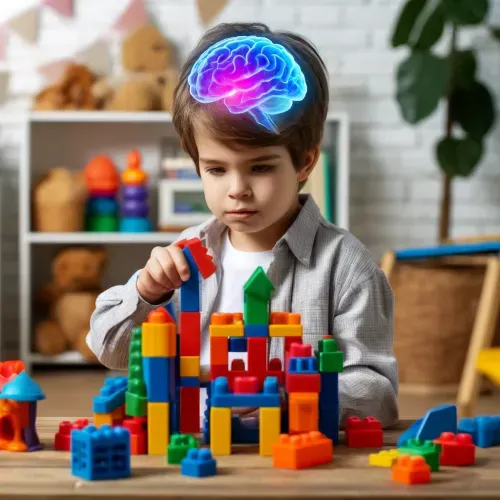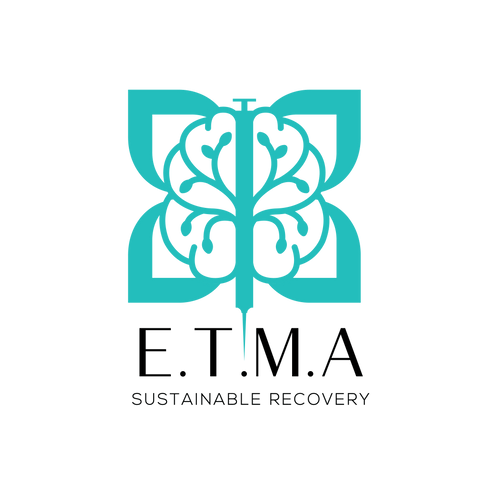Neurodivergent Minds And Perspectives

What is Neurodivergent?Diversity Of Neurodivergent BrainAutism Spectrum Disorder (ASD): Attention Deficit Hyperactivity Disorder (ADHD): Dyslexia: Dyspraxia (Developmental Coordination Disorder): Intellectual Disability: Tourette Syndrome: Giftedness: Sensory Processing Disorder (SPD): Strengths Of Neurodivergent MindsHow Common Is Neurodivergent?Evolution of NeurodivergenceThe Solace Difference
What is Neurodivergent?
‘Neurodivergent’ is a term used to describe individuals having different neurological development and functioning compared to the ones considered as neurotypical or typical behavior. In simpler terms, being neurodivergent means having a brain that works differently from what society might consider “normal.” It includes conditions like autism, ADHD, dyslexia, dyspraxia, and other neurodevelopmental conditions. Being neurodivergent is just a natural way that some people’s brains are wired. It’s like having a different operating system that comes with its own unique strengths and challenges.
Diversity Of Neurodivergent Brain
Neurodivergence encompasses a wide range of conditions, each with its own unique characteristics and challenges. Here are some of the most common types of neurodivergence:
Autism Spectrum Disorder (ASD):
Autism is a developmental disorder that affects how people communicate and interact socially, often leading to repetitive behaviors. Those with autism may need different levels of support and might have strengths like keen attention to detail or unique interests.
Attention Deficit Hyperactivity Disorder (ADHD):
People with ADHD have difficulty sustaining attention, hyperactivity, and impulsivity. They may also struggle with organization, time management, and impulse control but may also exhibit creativity, energy, and spontaneity.
Dyslexia:
Dyslexia is a learning disorder that affects reading and language processing. People with dyslexia may have difficulty decoding words, spelling, and understanding written text despite having normal intelligence and adequate educational opportunities. But interestingly, they may excel in other areas, such as problem-solving or creative thinking.
Dyspraxia (Developmental Coordination Disorder):
Dyspraxia impacts coordination and planning skills. People with dyspraxia might find tasks like writing, tying shoelaces, or playing sports challenging. They may also have trouble with organization, understanding space, and processing sensory information.
Intellectual Disability:
Intellectual disability refers to challenges in both intellectual functioning and adaptive behavior. People with intellectual disabilities may find learning, solving problems, and completing daily tasks difficult. They often receive support and accommodations to help them live fulfilling lives.
Tourette Syndrome:
Intellectual disability describes difficulties in both thinking and adapting to daily life. Those with intellectual disabilities may struggle with learning, problem-solving, and everyday activities. They often need support and accommodations to lead fulfilling lives.
Giftedness:
While not traditionally viewed as a neurodivergent condition, giftedness refers to individuals who demonstrate exceptional abilities or talents in one or more areas, such as intellectual, creative, or artistic pursuits. Gifted individuals may have unique social and emotional needs that require support and understanding.
Sensory Processing Disorder (SPD):
SPD is a condition that affects the way the brain processes sensory information. Individuals with SPD may be oversensitive or undersensitive to sensory stimuli, leading to difficulties in regulating their responses to touch, sound, taste, smell, or sight. Sensory accommodations and interventions can help individuals with SPD manage sensory challenges.
Strengths Of Neurodivergent Minds
Neurodivergent individuals offer unique perspectives that can enrich our understanding of the world. Their atypical cognitive styles often lead to innovative problem-solving approaches and unconventional insights. By recognizing and harnessing their strengths, neurodivergent individuals can thrive in various domains and make meaningful contributions to society. These strengths vary depending on the individual and their specific neurodivergent profile. For example:
- Individuals with autism may exhibit intense focus and attention to detail, making them valuable contributors in fields such as technology, engineering, and research.
- Individuals with ADHD may excel in dynamic environments that require quick thinking and adaptability.
- Individuals with dyslexia may have enhanced spatial reasoning skills, artistic creativity, or exceptional verbal communication abilities.
How Common Is Neurodivergent?
Neurodivergence is relatively common, with millions of people worldwide falling under the neurodivergent umbrella.
- According to the Centers for Disease Control and Prevention (CDC), approximately 1 in 54 children in the United States is diagnosed with ASD.
- ADHD is one of the most commonly diagnosed neurodevelopmental disorders in children. According to the American Psychiatric Association (APA), around 5% of children worldwide are estimated to have ADHD.
- The prevalence of dyslexia varies, but it is believed to affect around 5-10% of the population worldwide.
- According to the World Health Organization (WHO), approximately 1-3% of the global population has an intellectual disability.
Evolution of Neurodivergence
Neurodivergent perspectives offer valuable insights and contributions to our understanding of the world. The future of neurodivergence holds promise for greater recognition, acceptance, and support for individuals with diverse neurological profiles. As research continues to advance, our understanding of neurodivergent conditions will help debunk myths and misconceptions.
The continued advancements in neuroscience and diagnostic tools lead to earlier and more accurate identification of neurodivergent individuals which results in meeting the needs of these individuals and maximizing their development.
Schools and workplaces increasingly adopt inclusive practices that accommodate the diverse learning and working styles of neurodivergent individuals.
Neurodivergent-led initiatives with their unique abilities and strength will revolutionize industries and create solutions that benefit society as a whole. Finally, it is through acceptance, accommodation, and celebration of neurodiversity that we can create a more equitable and inclusive society for all.
The Solace Difference
At Solace Asia, our rehab center specializes in providing comprehensive care for individuals struggling with mental health disorders. We understand that each person’s journey to recovery is unique, which is why we offer personalized treatment plans tailored to address their specific needs and challenges. Our team of experienced professionals utilizes evidence-based practices and innovative approaches to effectively diagnose and treat neurodivergence of minds. If you or your loved one is suffering from challenges due to mental health issues, we are here to offer compassionate support and guidance every step of the way.

